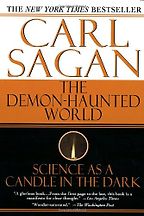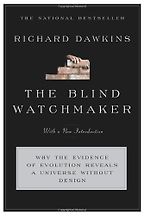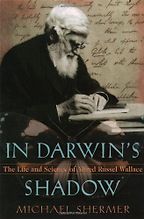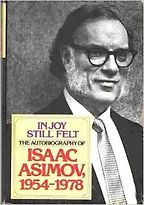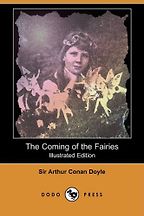You began your professional life as a stage magician and escapologist. After retiring, you began investigating the occult and the supernatural. What was the connection, for you?
As a professional magician I travelled the world very extensively. And I was consistently getting questions from people saying, “I saw a person do such and such a thing – is this a genuine demonstration of something paranormal?” I would try to explain to them, as best as I could, how it was done. In some cases I would know, and in other cases I would give them my theory. But I determined that when I would reach 60 – which was a long time ago now, come to think of it – I would turn my talents to this subject, which had always been of interest to me. I had written extensively on the subject of the so-called paranormal, saying that these things could easily be explained by trickery. So it came naturally to me that when I retired I would turn to this particular aspect.
And now you have a prize on offer of $1m to anyone who can prove under test conditions that they have supernatural abilities.
That’s right. Understand that this is not a contest with anyone else involved. It’s simply a challenge if you can do what you say you can do. Give us the parameters, we’ll design a protocol, and with your approval we’ll get someone to conduct a test. I don’t do it myself. The reason for that is rather strange. In the past I’ve had accusations from various psychics of inhibiting their abilities by putting out negative vibrations. So when I did a test on homeopathy with the BBC and the Royal Society a few years back, I told them that I didn’t want to know when the actual test was going to be done. I wanted to be notified no sooner than 48 hours after it was completely finished and decided upon, so that they couldn’t accuse me of that.
You first came to the attention of the world as a skeptic with your public challenge of Uri Geller’s abilities.
Uri Geller showed up in New York when he was just beginning, and he was making a minor sensation. I had never heard the name before. But I was invited by Time magazine to attend a little conference they were going to have with Geller. He was going to do a demonstration for them, and he had specified to his manager that there should be no magicians present. They naturally got very suspicious about that, and figured that it was probably a trick. So they asked me to sit in on the demonstration. I posed as if I were a reporter for Time, and I scribbled notes throughout.
Get the weekly Five Books newsletter
All the while I was looking over Mr Geller’s shoulder. At one point he bent a spoon, very obviously, and I caught him at it. He looked up over his shoulder at me and said, “Did you see that?” I said, “Yes, Mr Geller, I did see that.” He stood up and left the room, and that was the end of the conference. He started yelling at his manager that there were supposed to be no magicians. So he knew – as we say in the trade – that he’d been twigged. And the article that came out in Time magazine was very unsatisfactory from his point of view.
So how does Uri Geller bend a spoon?
He bends the spoon when no-one is looking. It’s as simple as that. If you look at videos of Geller up on YouTube, you can actually see him bend the spoon between his two hands. I’ve always been amazed that when Mr Geller picks a tea spoon up off a table, he uses both hands. Now I’m 83 years of age now, and I swear that I can hold as many eight or 10 spoons in one hand, walk around the room, and I don’t need to use the other hand to help me carry them. Yet when Mr Geller does it, he walks around with a spoon in both hands. And that’s usually when he puts the bend in the spoon, conceals it in his other hand, and gradually reveals it to view.
Let’s begin on your book selection with Carl Sagan’s The Demon-Haunted World.
First of all, Carl was my very good friend, and we had a lot of confidences over the years. He was the epitome of the scientific mind and the scientific thinker. In The Demon-Haunted World, one of his later books, he investigates pseudoscience, frauds and fakes, and the mistakes that scientists made over the years. It’s very comprehensive. He had a whole chapter devoted to “Carlos” – or Jose Alvarez, who travelled all over the world doing this act as a fake psychic, and then revealed the whole thing on Australian television. Carl was quite taken with that story, and he and Jose spent a couple of hours together at a scientific conference that they both attended.
That’s one reason why The Demon-Haunted World is a favourite book of mine, but there are so many other quotations I could take from it. It was certainly not my introduction to Carl, but it was an introduction to certain aspects of the way he thought and the way he handled science that really fascinated me.
What is the human impulse that leads us to invent the Loch Ness monster, UFOs, Big Foot and their like?
I don’t know that there’s much invention done by the individual member of the public. It’s largely the effort, the fault and the responsibility of the media. The media are not terribly interested in whether or not what they’re saying is true, as long as it can’t be proven to be false blatantly and obviously. They are only interested in the sensation that it causes – if it’s going to be a headline, an article or a few minutes on a Sunday television broadcast. As long as it gets space and attention – that’s all they’re interested in. And then they go onto the next one, whatever that might be.
And why not just let people believe what they will?
Well, for one reason, they vote. It’s important to think that my vote could be neutralised by a person who accepts all the “woo-woo” influences – I use the term “woo-woo” to describe something that is believed without any hesitation and without any evidence to support it. There’s information out there that will affect the way some people will vote on the world in general. And that is very dangerous.
Carl Sagan was an advocate of SETI, and as a science fiction writer he imagined aliens and more. What is the line between the obviously paranormal and what is potentially out there?
What’s potentially out there is another thing entirely, and that’s what science fiction is concerned with to a certain extent. In Contact, Carl was accused of having invented an afterlife and a spirit world, but that was not his intention and he didn’t do that. He worked very carefully on that book and on the film that came out of it. The public has largely misinterpreted what Carl actually had to say. He was very down to earth and sober in all of his approaches to a subject. He dealt with facts as he saw or could envisage them.
Tell us about your next choice, The Blind Watchmaker by Richard Dawkins.
This is the book that really introduced me to Richard Dawkins. It came out before I got to know him as well as I do know. It struck me as a perfect title, for one thing. It refers, obviously, to the religious idea that the universe and all the wonders of nature could not possibly have resulted from accident of evolution. They talk about the blind watchmaker not being able to make a watch, but if you’re given an almost infinite number of combinations and permutations of materials and situations, the world will come about. Or it may not. In our case, it came about. You’re here, I’m here, and I’m very happy about that.
As am I. But can the religious be treated with the same brush as the paranormal?
Of course. There’s no evidence for its claims whatsoever. In most cases, religious “miracles” – and I use that word in quotation marks all the time – don’t have any evidence behind them, except that they’re written about in a big black book that people like to refer to every now and then, with no authority, history or accuracy. It’s even more doubtful than paranormal claims.
Not everyone takes miracles in the Bible literally.
Well, if you want to think about them figuratively, I suppose you can make anything out of them that you want. I’m only concerned with those people who believe in them in a literal sense.
Let’s continue on the topic of evolution with your third book, a biography of Alfred Russel Wallace.
I was particularly fascinated by this book of Michael Shermer’s because Alfred Russel Wallace is a name that most students are not familiar with. But if you have a good knowledge of science you will recognise the name right away. He and Darwin converged on the idea of evolution from different angles. But Darwin was well supported by his family’s wealth and the fact that he could travel across the world, as he did on the Beagle, and come back with masses of specimens. He had the means to be able to collect all these things, while Alfred Russel Wallace was very poor.
It turns out that Alfred Russel Wallace was also a great believer in woo-woo and in spiritualism. He had his own personal reasons for believing in survival after death – most people do. Yet that coloured his life so substantially that he wasn’t quite able to wrap his mind around some of the problems that evolution presented. Alfred Russel Wallace should be given as much credit as Charles Darwin for discovering the idea of evolution, and if he didn’t have the prejudices of believing in superstitious nonsense – and if he had better income – then he could have been as famous as Darwin. But Darwin was more fortunate.
Is creationism dangerous?
Oh, very dangerous. It colours your life in such a way that you don’t have a grasp of how the world really operates, of how these things really did happen. There’s lots of evidence for evolution. It’s one of the most established ideas that science has ever promoted. Evolution has been firmly proven, there can’t be much doubt about it in my estimation.
Your fourth choice is Isaac Asimov’s autobiography, In Joy Still Felt.
As I sit here in my office I look up at a photograph of Isaac on the wall, and in the room next door there is Isaac Asimov’s library, about 4,000 books on science and pseudoscience. He was a very good friend and dearly missed. In Joy Still Felt is a joyous book, as its title suggests, and Isaac was a joyous person.
He was very fond of writing about himself. That may seem a bit egotistical, but then again he had every right to it – it was his life. This book shows his enthusiasm, his celebration of his own life. He was very happy with his life, even if he had strange turns of mind sometimes. For example, he was deadly afraid of flying. He knew it was a very safe way to travel, but anytime he got near an aircraft he felt that if he were to get on it, it would certainly fall to the ground. He had no reason to believe that, but this was one of his failings of logic and rationality.
His wife has a whole closet of unpublished manuscripts by Isaac. An ambition of mine is to see that they get published. We would be much the poorer for not seeing everything that Isaac wrote. He once told me that he never had a good idea that he didn’t write down – and that’s a very pregnant statement right there.
He’s best known for his science fiction inventions.
I think it’s very permissible to invent fantasies, so long as it’s sold as fiction. Isaac was very clear about that, and he never tried to fool anyone that he believed what he wrote as science fiction. Fiction is fiction, and it’s enjoyable. I myself am a great fan of fantasy and science fiction in general. I have a large collection of books by everyone from Ray Bradbury to George O Smith and all the rest of them. But I close these books knowing they are fiction, and I celebrate that fact.
The Coming of the Fairies is Sir Arthur Conan Doyle’s unbelievably credulous – if you’ll forgive the pun – account of the Cottingley Fairies hoax.
Written in 1922 by the creator of the super-logical character Sherlock Holmes, this to me is a perfect example of very bad thinking. Conan Doyle lost his son Kingsley after Kingsley returned, badly injured, from World War I. And Conan Doyle spent the rest of his life looking for some form of communication from him. He thought that he had found it through several spirit mediums, who fooled him. He was very easily fooled. He was even fooled by a couple of teenage girls who invented the story of the Cottingley fairies in 1917. I myself exchanged a long correspondence with Elsie Wright, who was the main instigator of that hoax. She never quite cracked to me – that is, she never said in so many words that it was a fake. But she did say that I was taking away the fun for people. I don’t think so. I’m just informing them. I think it was a delicious hoax.
The Coming of the Fairies is so naïve, so accepting, [it is] so shameful that Arthur Conan Doyle could have come out with it. He got stories from people from all over the world that went into the book. And there was just one case that he doubted, from a lady who said she saw in the forest a little carriage pulled by tiny horses with fairies sitting in the back of the carriage. He was aghast at that. He thought tiny horses were ridiculous. He could accept fairies with wings on their backs, but not tiny horses. So there was a limit to his acceptance, but my goodness it was far out there.
It seems ironic that Conan Doyle so failed to live up to his character Sherlock Holmes’s sceptical and scientific mind.
Many people have commented how amazing it is that Sherlock Holmes, the most logical fictional character ever created by a writer, was created by Arthur Conan Doyle. But I think they’re very wrong in that observation. Sherlock Holmes could not function as a human being the way that Conan Doyle had him function. In one story, Sherlock enters a deserted building, finds some cigar ash on the floor, and deduces from this cigar ash a huge amount that would have been impossible to deduce that way. He didn’t make allowance for the fact that maybe some hobo out on the street had picked up a cigar butt, lit it and went inside this building to smoke it. No no, there had to have been someone extremely wealthy in this building, because this was a very expensive cigar, and the ship only came in at a certain hour of the day on a certain month, and so on – the most convoluted reasoning, to no avail whatsoever. There are many other examples that show how Sherlock Holmes could not have existed in a real world.
Conan Doyle is purported to have been friends with Harry Houdini…
Don’t go any further. He was not friends with Harry Houdini. Harry Houdini liked everyone to believe he was a friend of Conan Doyle’s and vice versa. The two of them bore with one another because they were feeding off each other’s notoriety and fame. Eventually, the friendship – such as it was – broke off completely. I have with me a number of original letters that Conan Doyle wrote to friends, really bombing on Harry Houdini. One of these days I hope to get around to publishing these letters in a book. And in my next book, A Magician in the Laboratory, which will be coming out anon, there is a big discussion of the apparent friendship between Arthur Conan Doyle and Harry Houdini, which was more of a publicity stunt than anything else.
Get the weekly Five Books newsletter
At one point, Conan Doyle claimed Houdini was not a magician but had real supernatural powers. I gather this has also happened to you. You’ve been accused of being a “fraud”, in the sense of actually being a psychic.
Yes, I have. That’s pretty lame thinking, I would say. If people only have that for a solution, then they know nothing of the conjuring art whatsoever. My colleagues in the Magic Circle in London and I often get together and laugh about it – although it’s a rather sad situation if people believe that what we do on stage has to be paranormal. David Copperfield himself told me of a stunt where he would call up a person from the audience at random and tell them their telephone number. It’s a standard trick, but people were still insistent that it had to be genuine, because there is no possible way to do that. Of course there is! It’s known as mentalism. But so many lay persons out there, and even scientists as well, think that they know better about some of these things. If scientists think that a piece of paper with “PhD” on it makes them absolutely infallible, they’ve made a big mistake.
This interview was published September 28th, 2011
Interview by Alec Ash
September 16, 2011
Five Books aims to keep its book recommendations and interviews up to date. If you are the interviewee and would like to update your choice of books (or even just what you say about them) please email us at [email protected]
Five Books interviews are expensive to produce. If you've enjoyed this interview, please support us by donating a small amount.
